Flight cancellations can be incredibly frustrating and stressful, particularly if you’re in the middle of a trip or heading toward an important destination. While cancellations are often beyond your control, understanding the steps to take when your flight is canceled can help minimize the inconvenience and stress. This guide provides everything you need to know, covering not only the immediate actions to take but also important details about your rights, how to seek compensation, and the statistics behind flight cancellations.
Whether it’s due to bad weather, technical issues, or operational reasons, flight cancellations are more common than most travelers would like to believe. Having a plan in place and knowing your rights can turn what could be a stressful situation into a manageable one.
Why Do Flights Get Canceled?
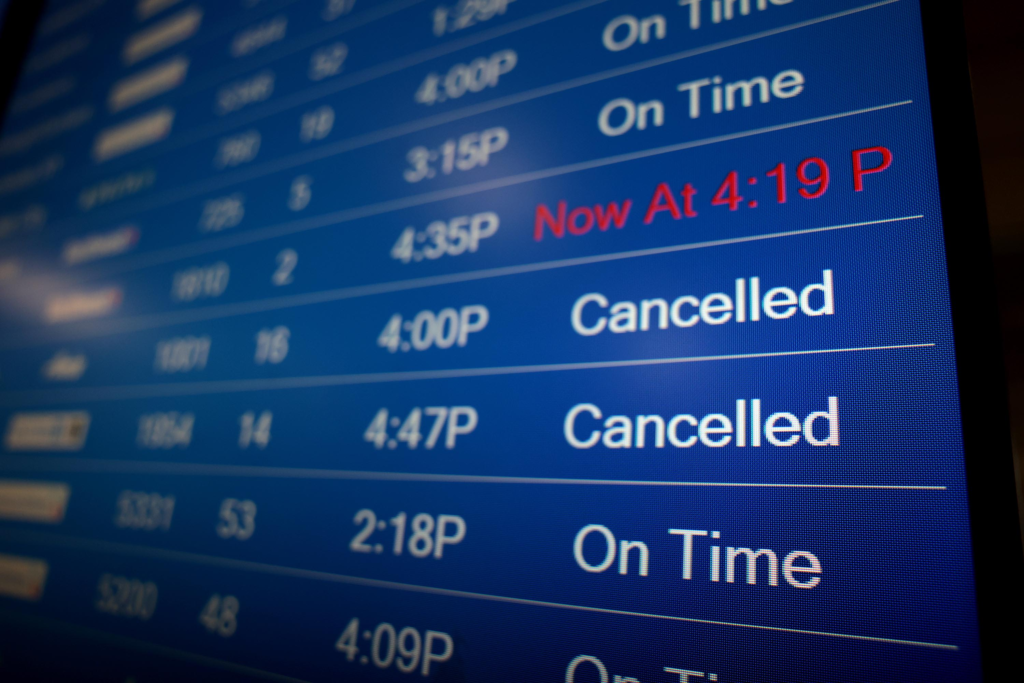
Before diving into what you should do when your flight is canceled, it’s important to understand why cancellations happen. Airlines cancel flights for a variety of reasons, and while some are preventable, others are not. Here are some of the most common causes of flight cancellations:
- Weather Conditions: Severe weather such as snowstorms, hurricanes, and heavy rain can make it unsafe for planes to take off or land. Even less extreme weather like fog or wind can disrupt schedules.
- Technical Issues: Mechanical problems with the aircraft can lead to cancellations if they cannot be fixed in a timely manner.
- Air Traffic Control: Congestion in the skies or at airports can cause delays and cancellations as air traffic controllers manage the safe movement of planes.
- Crew Availability: Pilots and crew have strict limits on how long they can work, and if the crew cannot legally or safely continue working due to delays or other factors, flights may be canceled.
- Operational Issues: Sometimes, airlines cancel flights due to logistical reasons, such as overbooking or maintenance delays.
- Pandemics or Global Crises: Events like the COVID-19 pandemic showed how global crises can result in massive flight cancellations, sometimes with little or no notice.
According to the U.S. Department of Transportation, about 2% of all flights in the U.S. are canceled each year, with weather being the leading cause. Although this number may seem small, when you consider that there are over 600,000 domestic flights each year, that translates to about 12,000 canceled flights annually.
What to Do When Your Flight Is Canceled
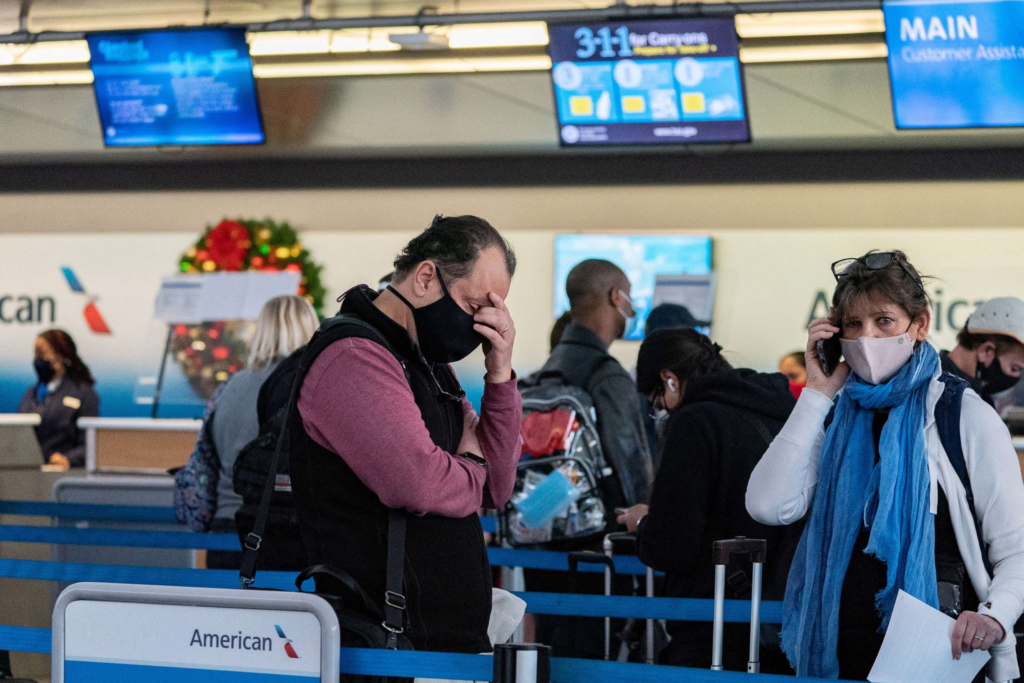
When your flight is canceled, knowing exactly what to do can save you time, money, and frustration. Here is a step-by-step guide to help you navigate this situation.
1. Stay Calm and Gather Information
The first thing to do when you learn your flight is canceled is to remain calm. While the cancellation may disrupt your plans, staying composed will help you think more clearly and act quickly.
Check the airline’s communication channels—this can be their website, mobile app, or a notification sent via email or text—to understand why the flight was canceled. In many cases, airlines will provide options such as rebooking you on the next available flight, offering a refund, or providing vouchers for future travel.
2. Know Your Passenger Rights
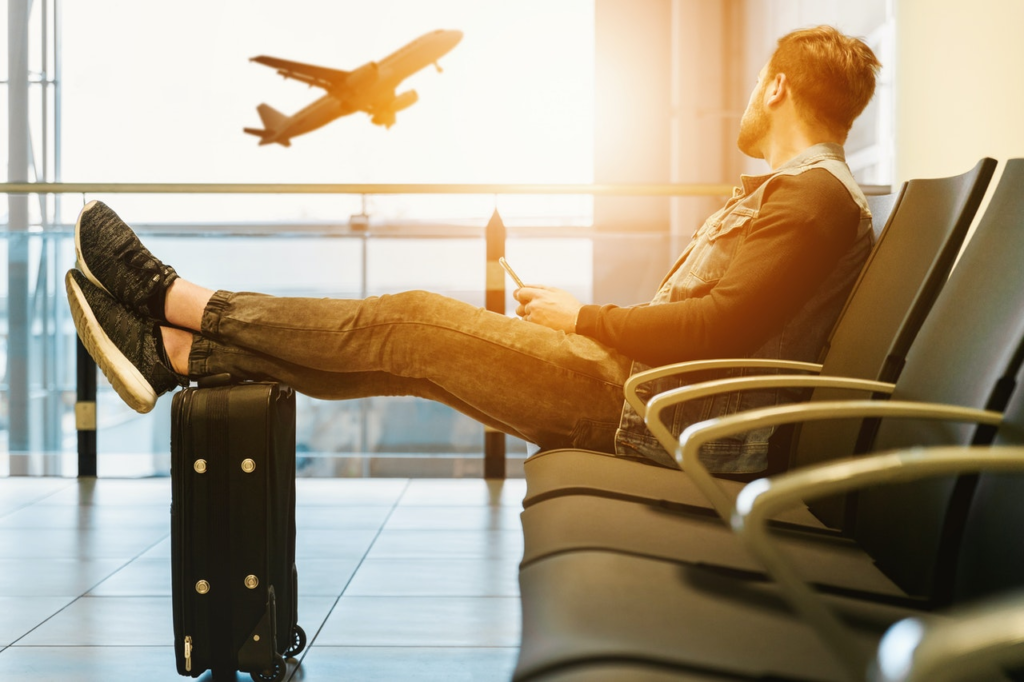
Your rights in the event of a flight cancellation vary depending on where you’re flying and the airline you’re using. However, knowing the basics can ensure you don’t miss out on compensation or alternative arrangements.
- U.S. Domestic Flights: In the U.S., airlines are not legally required to compensate passengers for canceled flights. However, most airlines will either refund your ticket or offer to rebook you on the next available flight at no extra charge. If the cancellation results in an overnight delay, airlines may offer accommodation or meal vouchers, though this varies by airline.
- European Union Flights (EC Regulation 261/2004): If your flight is canceled within the EU or by an EU airline flying into the EU, you are entitled to certain rights under EC 261. These include compensation between €250 and €600 depending on the flight distance and the notice period provided by the airline. You are also entitled to meals, accommodation, and rebooking on another flight.
- International Flights: International regulations vary, but many airlines follow similar policies to the EU’s, especially if they are large global carriers. Check with your airline to understand their policies.
Always ask the airline for clear information about your rights when your flight is canceled, as some carriers may not automatically provide compensation unless requested.
3. Rebook as Soon as Possible

After a cancellation, time is of the essence. Airlines will often try to rebook passengers automatically, but it’s always a good idea to take control of the situation.
- Use the Airline’s App or Website: Many airlines allow passengers to rebook directly through their app or website. This can often be faster than standing in line at the airport or waiting on hold for a customer service representative.
- Call Customer Service: If you prefer speaking with someone, call the airline’s customer service. Be prepared for potentially long wait times, especially if the cancellation affects many passengers.
- Visit the Ticket Counter: While waiting on hold, it can also be helpful to head to the airline’s ticket counter. Sometimes, talking to a representative in person can speed up the rebooking process.
It’s a good idea to check alternative airports as well. If your destination has multiple airports nearby, see if you can be rebooked to land at one of them instead.
4. Explore Refund and Compensation Options

If rebooking isn’t an option or you’ve decided not to continue your journey, ask for a refund. Airlines are typically required to offer a refund if your flight is canceled, even if it’s a non-refundable ticket. However, this may take time, as airlines often process refunds over several weeks.
If you’re eligible for compensation, like under EU law, make sure to file your claim promptly. Some airlines allow you to submit claims directly through their website, while others may require a more formal process.
Additionally, if your credit card includes travel insurance, you may be eligible for compensation for canceled flights, lost baggage, or additional costs incurred due to the cancellation.
5. Consider Travel Insurance

Travel insurance can be a lifesaver when flight cancellations occur, especially if you have non-refundable bookings for hotels or activities at your destination. Many travel insurance policies include trip interruption or trip cancellation coverage, which can reimburse you for canceled flights and additional expenses like accommodation and meals.
If your flight is canceled for reasons like severe weather or a mechanical issue, travel insurance can also help cover the costs of rebooking a new flight or extending your stay. While airlines may cover certain expenses, such as meal vouchers or overnight accommodations, there are often limits to what they provide.
Travel insurance is particularly useful for international flights, where cancellations can have a ripple effect on other parts of your trip. Make sure to check the fine print of your policy to understand exactly what is covered.
6. Keep Receipts and Document Expenses

When dealing with a flight cancellation, it’s essential to keep detailed records of all your expenses. This can include meals, transportation, accommodation, and any other costs incurred due to the cancellation. If the airline offers to reimburse you or if you plan to claim through travel insurance, you will need these receipts to support your claim.
In some cases, airlines may not offer compensation immediately but will allow you to file a claim later. Having all necessary documentation will make the process smoother and increase your chances of getting reimbursed.
7. Stay Informed About Weather and Travel Alerts
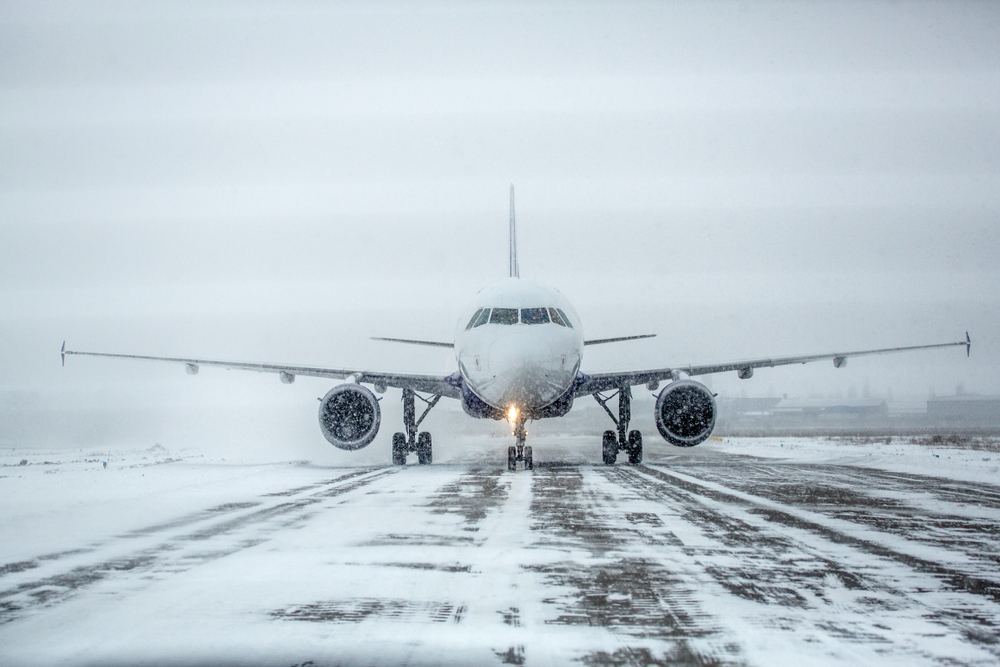
Many flight cancellations happen because of unpredictable weather. While you can’t control the weather, you can stay informed. Before heading to the airport, check the weather conditions for both your departure and arrival cities. Many airlines and third-party apps allow you to track your flight status in real-time, including any delays or potential cancellations.
Being aware of travel alerts from the airline, airport, or government can also give you more time to react and plan in the event of a cancellation. Subscribing to text alerts from your airline or using flight tracking services can keep you ahead of any changes.
8. Consider Alternative Transportation
If your flight is canceled and rebooking on a later flight doesn’t fit your plans, consider alternative modes of transportation. Depending on your destination, traveling by train, bus, or car rental might be a more reliable or faster option, especially if the cancellation is due to weather affecting air traffic.
In the U.S., many cities are well connected by Amtrak trains or intercity buses like Greyhound. In Europe, trains are often an excellent alternative, especially for short to medium distances.
9. Don’t Be Afraid to Ask for Help
In the chaos of a flight cancellation, it’s easy to feel overwhelmed. Don’t hesitate to ask for help from airport staff, fellow travelers, or even social media platforms. Airlines often monitor their social media accounts and sometimes respond faster to inquiries made on platforms like Twitter or Facebook.
If you’re part of a frequent flyer program, consider reaching out to your airline’s loyalty service. Elite members often receive priority service and may be able to rebook faster or receive additional compensation.
Statistics and Facts About Flight Cancellations
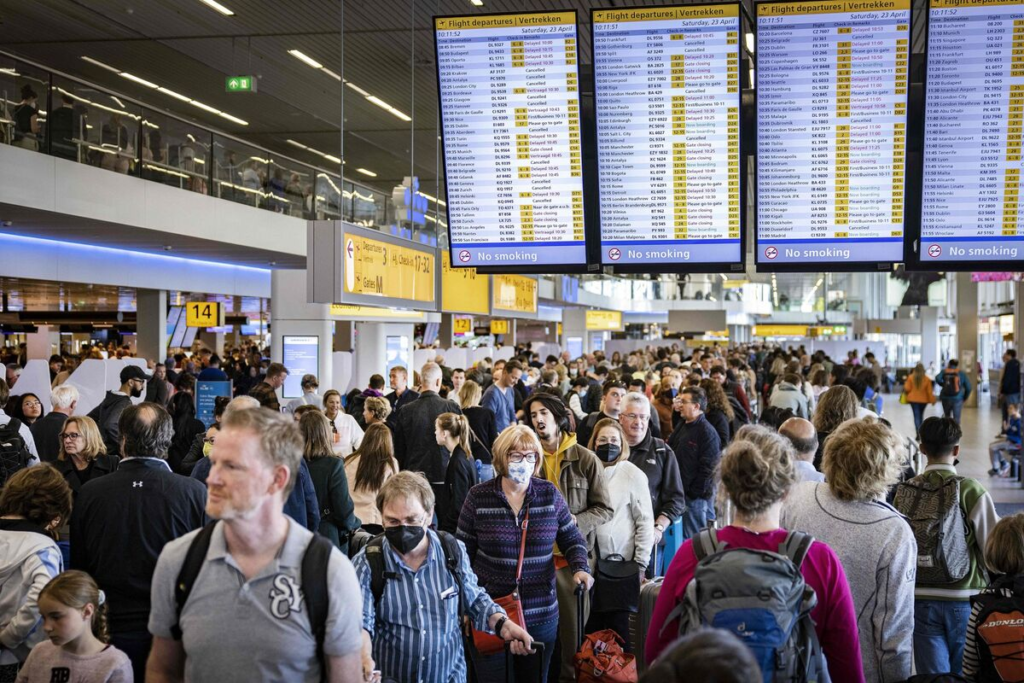
Understanding the scale of flight cancellations can help put your experience into perspective. Here are some key statistics about flight cancellations around the world:
- United States: According to the U.S. Bureau of Transportation Statistics, approximately 2-4% of domestic flights are canceled annually. In 2021, about 88,161 flights were canceled in the U.S., with weather accounting for about 69% of those cancellations.
- European Union: In 2019, over 17 million passengers were affected by flight cancellations in Europe, according to the European Consumer Organisation. Cancellations due to weather and strikes are the most common reasons.
- Global Impact of COVID-19: The COVID-19 pandemic resulted in an unprecedented number of flight cancellations. According to IATA, global air traffic dropped by 66% in 2020, with many airlines grounding large portions of their fleets due to travel restrictions and lockdowns.
Turning a Canceled Flight into a Manageable Situation
While a flight cancellation is never a welcome event, knowing the right steps to take can reduce stress and help you stay in control of the situation. From rebooking as soon as possible to understanding your rights and exploring alternative transportation, being prepared and informed is key.
Staying proactive by keeping up with weather alerts, travel insurance policies, and compensation laws can also provide you with peace of mind. By following this guide, you can navigate flight cancellations with confidence, ensuring that even if your plans are delayed, your trip is still a success.
Read more: Things to Avoid While Traveling for the First Time




